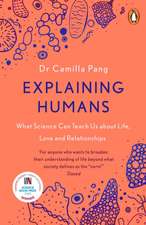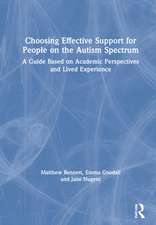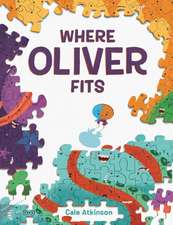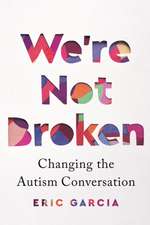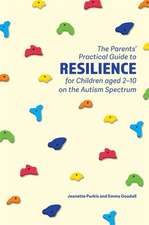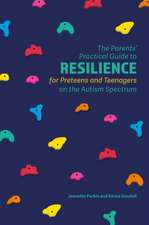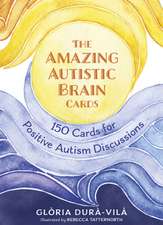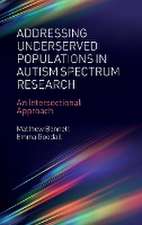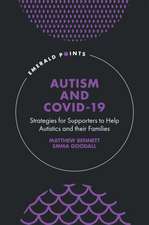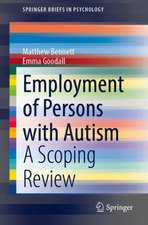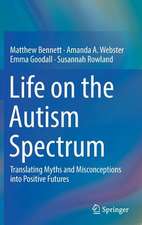The Guide to Good Mental Health on the Autism Spectrum
Autor Jeanette Purkis, Emma Goodall, Jane Nugenten Limba Engleză Paperback – 20 mar 2016
Preț: 116.72 lei
Preț vechi: 139.49 lei
-16% Nou
Puncte Express: 175
Preț estimativ în valută:
22.34€ • 23.08$ • 18.59£
22.34€ • 23.08$ • 18.59£
Carte disponibilă
Livrare economică 05-19 martie
Livrare express 18-22 februarie pentru 50.52 lei
Preluare comenzi: 021 569.72.76
Specificații
ISBN-13: 9781849056700
ISBN-10: 1849056706
Pagini: 272
Ilustrații: 5 diagrams in the text
Dimensiuni: 150 x 228 x 24 mm
Greutate: 0.43 kg
Editura: JESSICA KINGSLEY PUBLISHERS
ISBN-10: 1849056706
Pagini: 272
Ilustrații: 5 diagrams in the text
Dimensiuni: 150 x 228 x 24 mm
Greutate: 0.43 kg
Editura: JESSICA KINGSLEY PUBLISHERS
Descriere
Drawing on their own clinical and lived experiences of the autism spectrum, the authors of this guide provide readers who are on the autism spectrum and have a mental illness with strategies to overcome difficulties and achieve greater wellbeing. Amongst others, the book covers topics such as medication, stigma, therapy pets and psychotherapy.
Notă biografică
Yenn Purkis is an autistic and non-binary advocate, author and presenter. Yenn has a Masters degree in Fine Art from RMIT University. Yenn has given a presentation for TEDx Canberra and has been a frequent keynote presenter at autism and disability events for several years. Yenn has a number of awards, including the 2016 ACT Volunteer of the Year award and a number of other awards for community leadership including being nominated for the Australian of the Year award in 2017. Yenn has worked full-time for the Australian Public Service since 2007. They have facilitated a support group for autistic women and gender diverse folks in Canberra since 2011. Yenn has featured in media interviews for many years and was one of four autistic adults featured in the ABC TV documentary Alone in a Crowded Room. Yenn lives in Canberra, Australia.
Cuprins
Introduction. 1. Diagnosis. 2. Anxiety Disorders. 3. Depression. 4. Self-harm. 5. Suicidal thoughts. 6. Psychosis. 7. Communication problems. 8. Stigma and discrimination. 9. Family incidence of autism and mental illness. 10. Strategies to aid sleep. 11. The value of pets. 12. Mindfulness. 13. Psychotherapy. 14. Medication. 15. Crisis measures. 16. Self-esteem and self-confidence. 17. Resilience. 18. Summary of strategies to maintain mental health. 19. Resources.


